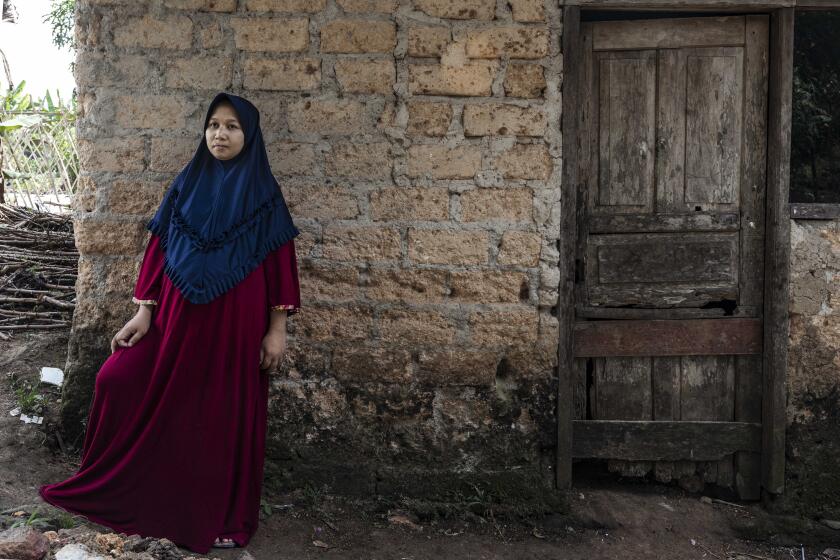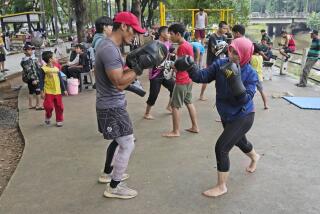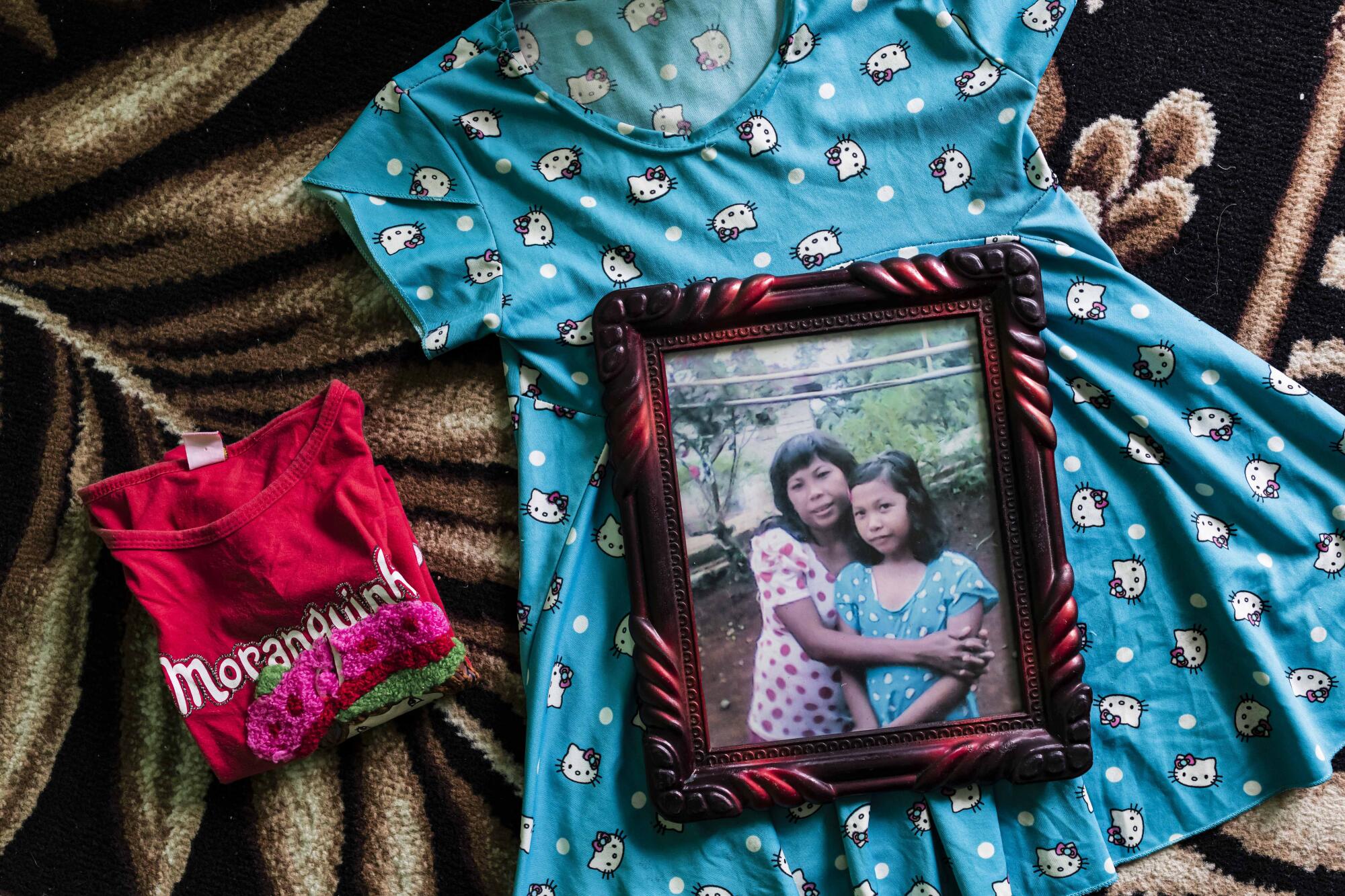
- Share via
BENGKULU, Indonesia — She keeps a pile of her daughter’s belongings in a corner of her bedroom: report cards, notebooks wrapped with pages torn from old calendars, a favorite Hello Kitty dress.
More than five years after her child was gang raped and murdered in one of the most gruesome cases of sexual violence in Indonesia, the mother tries to tame her grief by pretending Yuyun is still near.
She Photoshops her into family portraits taken long after her death. She dresses her new toddler in her slain daughter’s hand-me-downs. Sometimes, she even makes the mistake of calling the little one Yuyun.
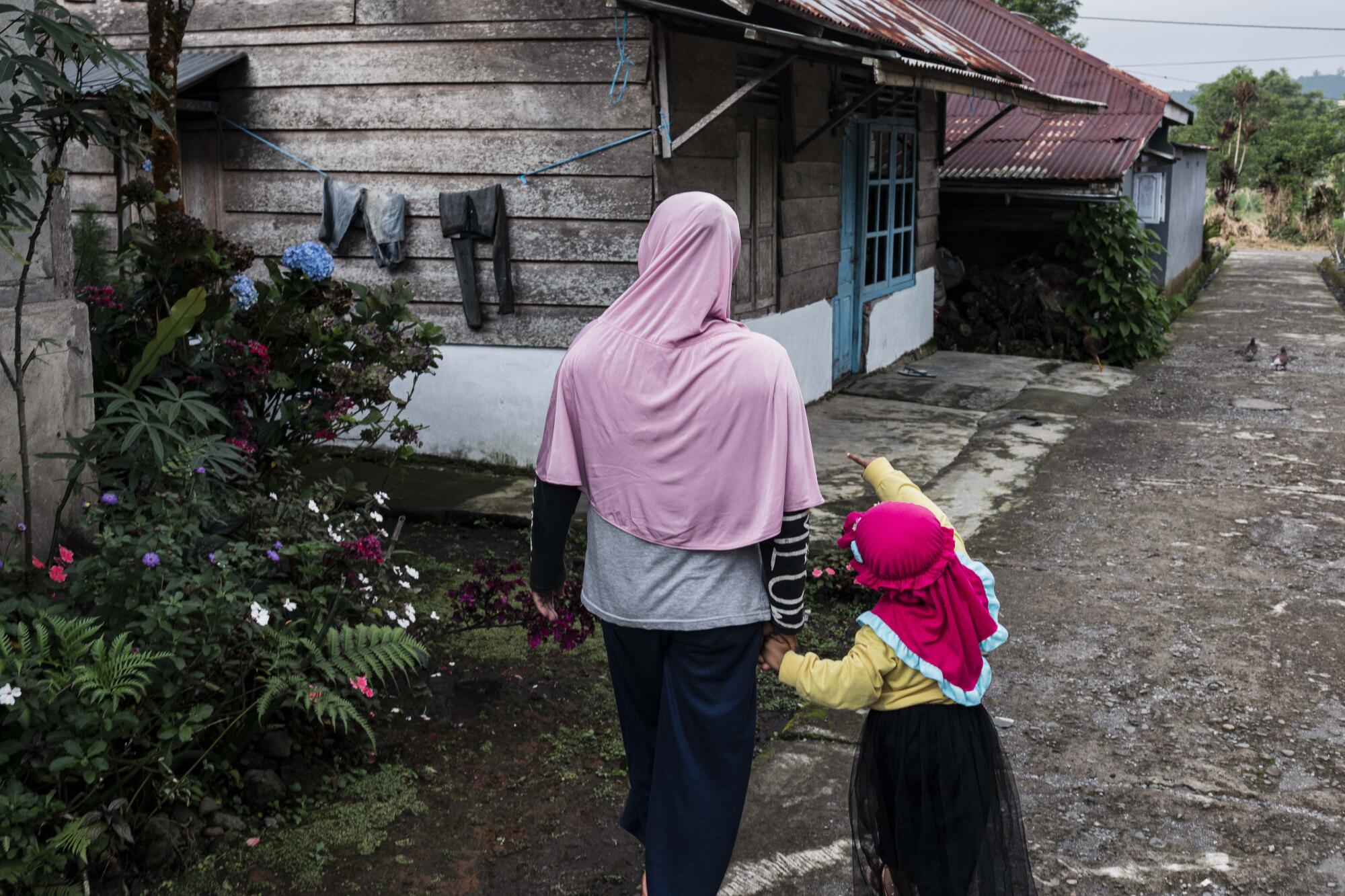
“I want her to know I still think of her,” said the mother, Yana, a 38-year-old farmworker who must live in hiding because of threats made against her by relatives of the attackers. “My heart is broken. She was not only my daughter, she was my friend.”
Yuyun was a day away from turning 14 when she was assaulted on her walk home from school. Her body was discovered two days later at the bottom of a cliff covered by leaves, her hands bound behind her back. A post-mortem found she had died from multiple blows to the head before she was raped.
Born Into Danger
Born Into Danger
This is the second in a series of occasional stories about discrimination and human rights abuses faced by women in Indonesia.
News of her murder ignited outrage, inspiring protests, candlelight vigils and calls to pass laws to protect women and children in a country where sexual violence regularly goes unpunished. President Joko Widodo demanded Yuyun’s killers face the death penalty.
But since then, this nation of 17,000 islands has only grown more dangerous for women and girls — and the prospect of passing laws to protect them ever more frustrating. Yuyun’s death, once seen as a turning point in a patriarchal society, now stands as a disturbing symbol of how little progress has been made in the fight for gender equality.
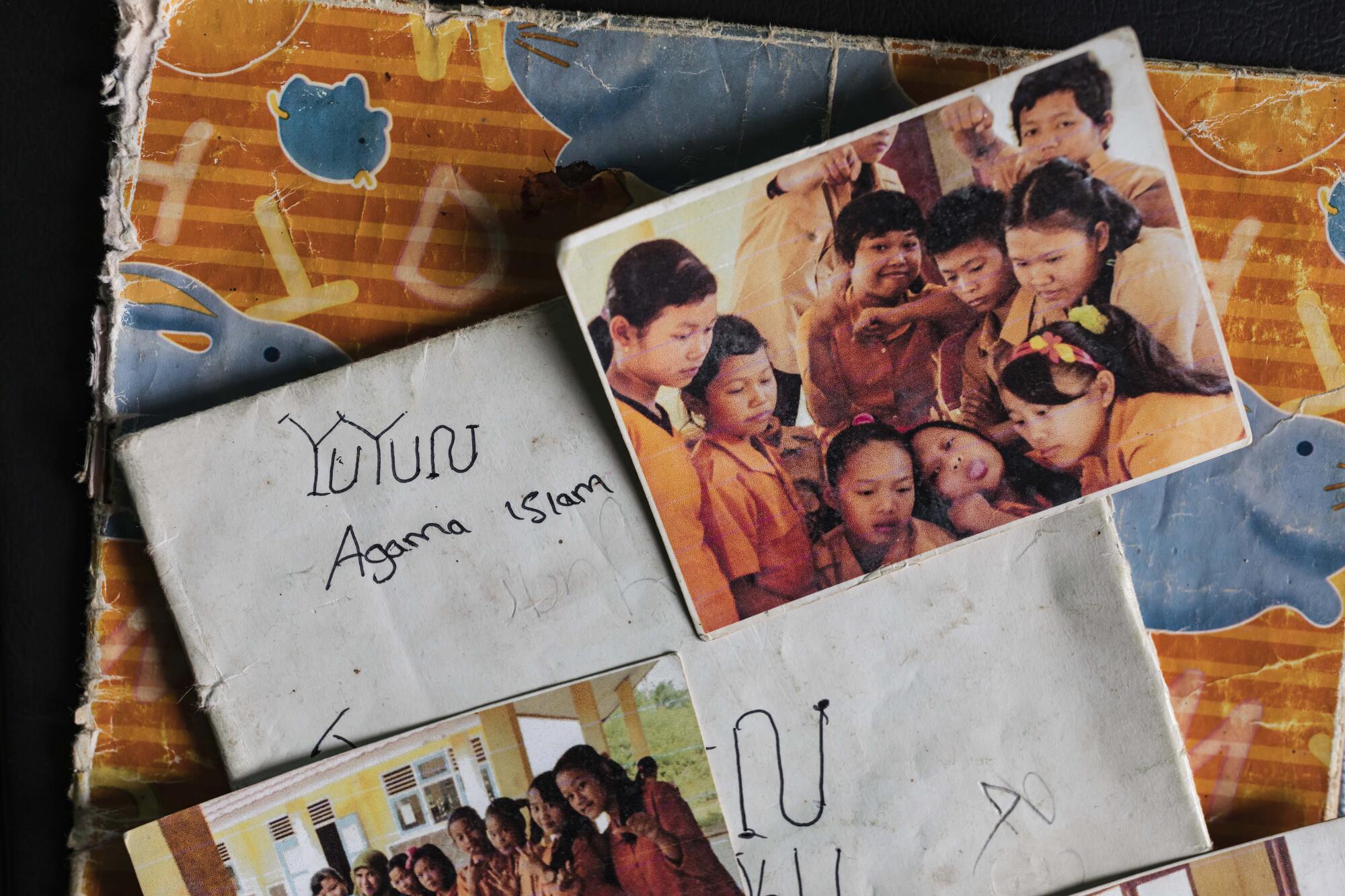
“Five years after what happened to Yuyun, we are still at the same place,” said Veni Siregar, a longtime advocate for female abuse victims. “It feels like she’s been forgotten.”
Reported cases of rape and other violent assaults against girls and women have soared since Yuyun’s slaying in 2016, rising by 66% to 430,000 in 2019, according to data compiled by Indonesia’s National Commission for Violence against Women. The number dipped to 300,000 in 2020 because of COVID-19 lockdowns, but still remained 15% above 2016 levels. The commission estimates that only 30% of the incidents are reported as victims are often scared or discouraged from going to the police.
Veni blamed the crisis on the country’s weak laws, which have emboldened abusive men to act with impunity and discouraged police from seriously investigating assaults. “Many cases are not processed properly,” she said. “When an assault takes place between two adults, authorities usually conclude that it was not an assault but an act of consensual sex.
“The situation is even worse when it’s a case of domestic violence because they’ll mostly just ask the couples to reconcile.”
The problem is particularly acute in schools. Education Minister Nadiem Makarim said in November universities were facing a “pandemic” of sexual violence, citing a survey last year that found 77% of campus educators knew of an assault and 63% of them failed to report it.
Millions of domestic workers in Indonesia risk abuse in a job dismissed as “women’s work.” A law designed to protect them has languished for 17 years.
Women’s rights activists say those troubling and persistent figures could have been averted if lawmakers passed a law called the Elimination of Sexual Violence Bill, which proposed sweeping changes to policing assault and targeting the culture of misogyny complicit in Yuyun’s death.
Backers of the bill, which was introduced the same year Yuyun was killed, wanted to include a spectrum of sexual offenses such as sexual harassment, sexual torture, forced pregnancy and forced prostitution. The current criminal code only recognizes sexual violence as molestation, adultery and rape, which is defined narrowly as forced penetration of a penis into a vagina.
Just as importantly, activists say, the law would have provided legal and medical support for victims. Existing laws make it difficult for victims to expose their abusers. In one high-profile case, a school bookkeeper and mother of three named Baiq Nuril was sentenced to six months in jail in 2018 for defamation after she recorded her principal making lewd advances toward her. It took a presidential pardon to prevent her from going to prison.
The uneven treatment of women is not unexpected in a country where power is kept mostly in the hands of men. According to the World Bank, only one-fifth of senior and middle management jobs are filled by women, mirroring the share of female lawmakers in parliament. That inequality has hardened traditional gender roles at a time when conservative Islam has become a greater force in Indonesian life. Sex has grown more taboo and devoid of female perspective.
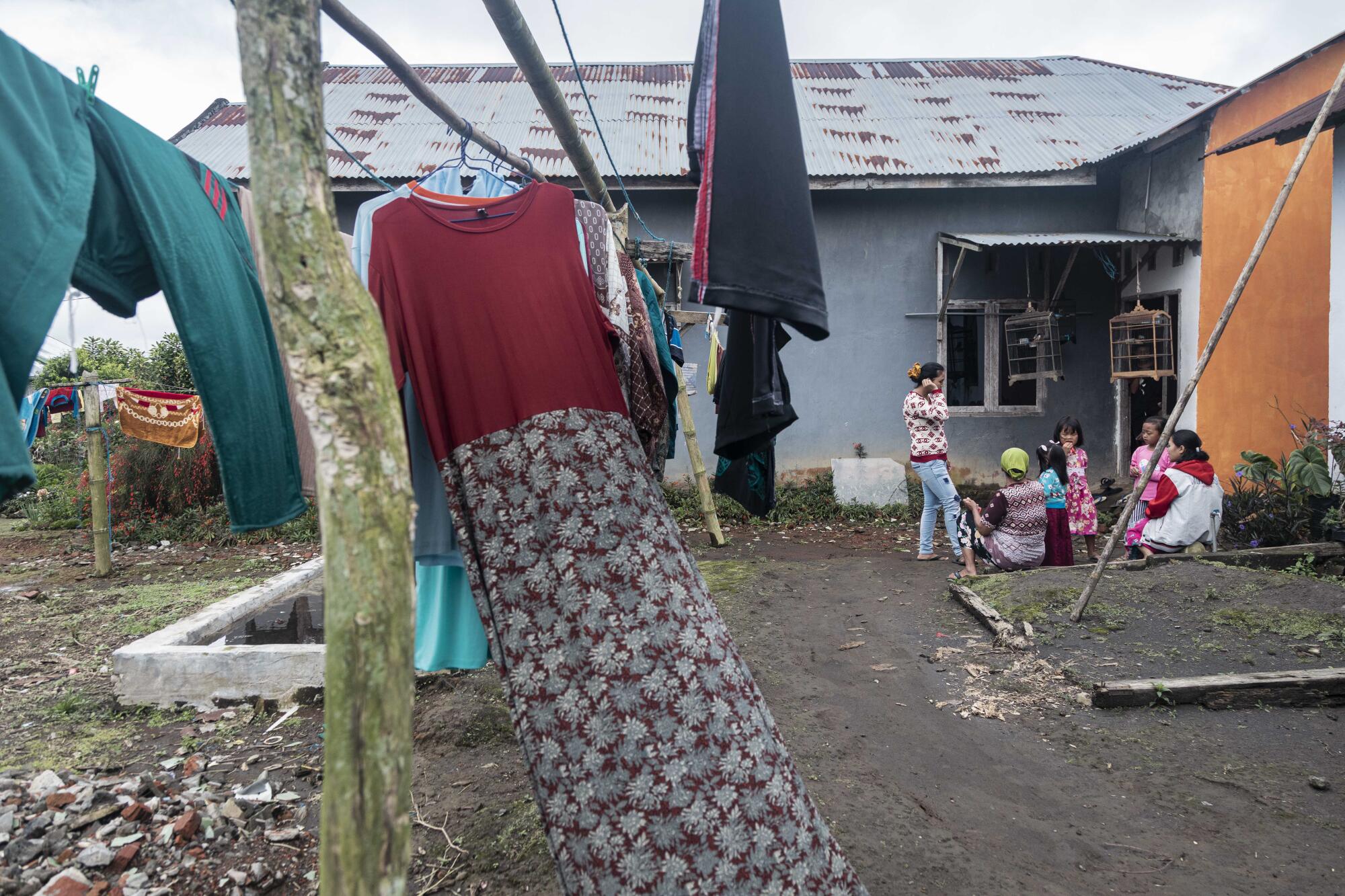
The burden on women not to seek justice — and instead to comply with the wishes of men and the constrictions of religion — is startling. Earlier this year, Indonesia’s top legal official, Mahfud MD, suggested rape victims and their families might be better off if they adhered to old tribal rules requiring them to marry their rapists “so that the rape victim isn’t ashamed in front of the whole village.”
Around the same time, a controversy erupted in Bekasi, a city just outside the capital, Jakarta, over a politician’s suggestion that his 19-year-old son marry the 15-year-old girl the son raped to remove any lasting stigma.
“When rape happens, rather than seeing it as a crime against a woman’s body, they see it as a moral issue, an embarrassing event,” said Ratna Bataramunti, a women’s rights activist helping provide legal aid to victims of sexual abuse. “With that kind of perspective, suddenly the crime is not there. The woman must be blamed for allowing such a thing to happen to herself.”
The proposed sexual violence bill has languished because of opposition from religious conservatives who worry that expanding the parameters of nonconsensual sex requires tacit approval of consensual sex between unmarried or same-sex couples.
“We agree that sexual violence cannot happen and perpetrators must be heavily punished, but the law must not promote rampant promiscuity,” said Ledia Hanifa, a lawmaker for the Islamist Prosperous Justice Party.
A watered-down version of the bill renamed the Sexual Violence Criminal Act is now open for deliberation. It includes fewer proposed offenses and eliminates help for abuse victims. That has infuriated women’s rights advocates who have spent years lobbying for protections — all while instances of sexual violence continue to flare in the country of 270 million.
The most recent case occurred last week, when prosecutors accused a teacher of raping at least 21 students at an Islamic boarding school in the city of Bandung. Herry Wirawan, 36, allegedly fathered eight children with his victims, who were all between 16 and 17 years old. Two are currently pregnant.
Earlier this month, a 23-year-old university student in East Java died by suicide after she was allegedly drugged and raped by her boyfriend, a police officer. The woman posted online saying she got pregnant and her boyfriend pressured her into having an abortion. She said she was ignored by police when she tried to file a report and that her relatives refused to offer help because she had “embarrassed” the family. The woman swallowed poison next to her father’s grave. He had died of COVID-19 last year. Police, under mounting pressure, say they’ve launched an investigation.
Few places in Indonesia have a worse reputation for sexual violence than Yuyun’s home province of Bengkulu, a strip of rural land enriched with volcanic soil along the southwestern coast of the island of Sumatra.
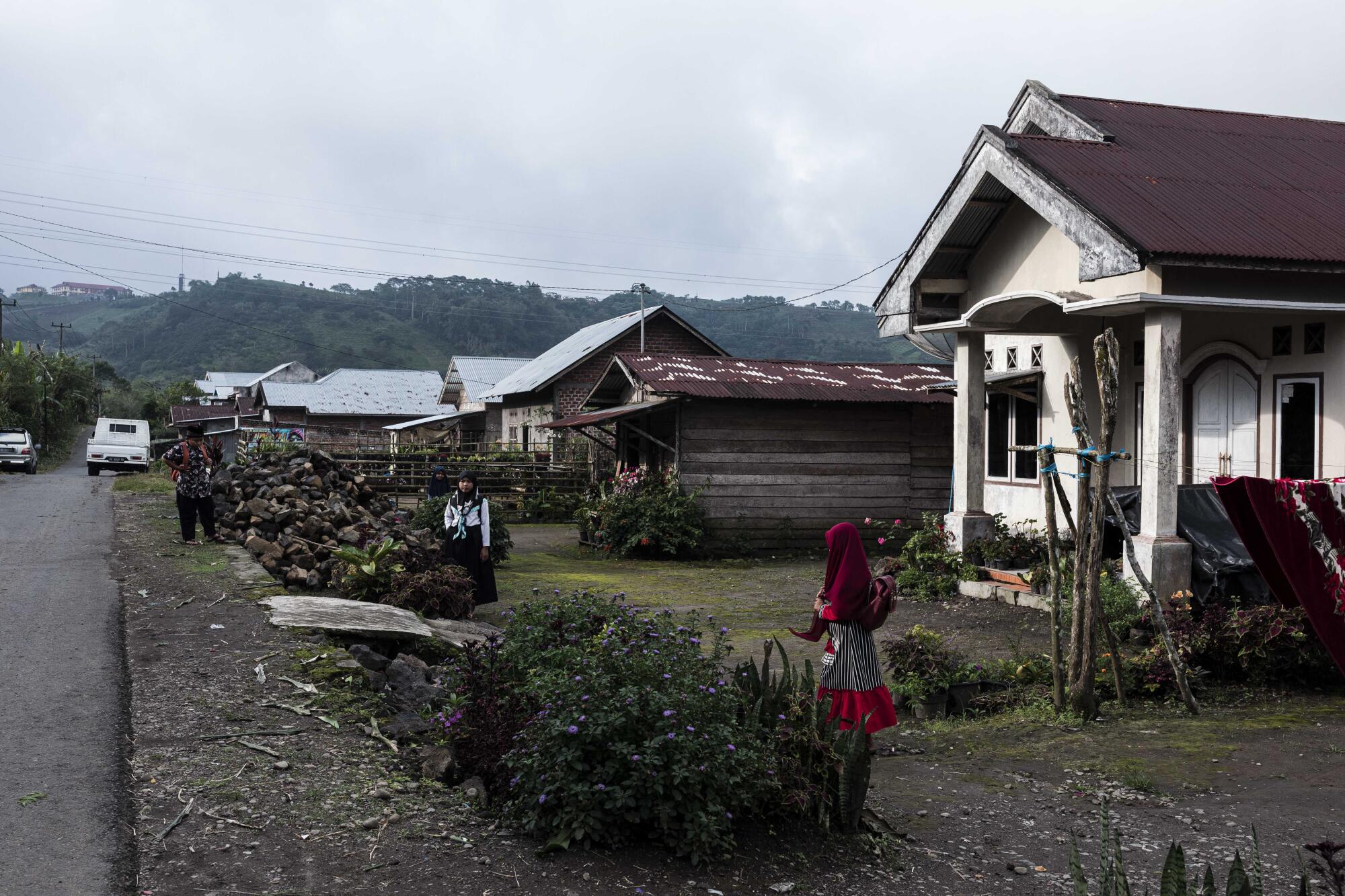
Much of Indonesia looks like Bengkulu with its rows of palm oil trees, narrow unpaved roads and single story wooden homes capped with corrugated metal roofs. Activists here say poverty, poor schooling and an abundance of drugs and crime contribute to an atmosphere of fear for females.
Last year, a 14-year-old girl was drugged and raped here. In 2019, a 20-year-old university student was raped and killed by a security guard. Her body was discovered buried behind her boarding house.
Two teenage women in Bengkulu who spoke to The Times described being molested in 2018 by the head administrator of their village after he invited one of the teenagers into his office to apply for a program for economically disadvantaged students.
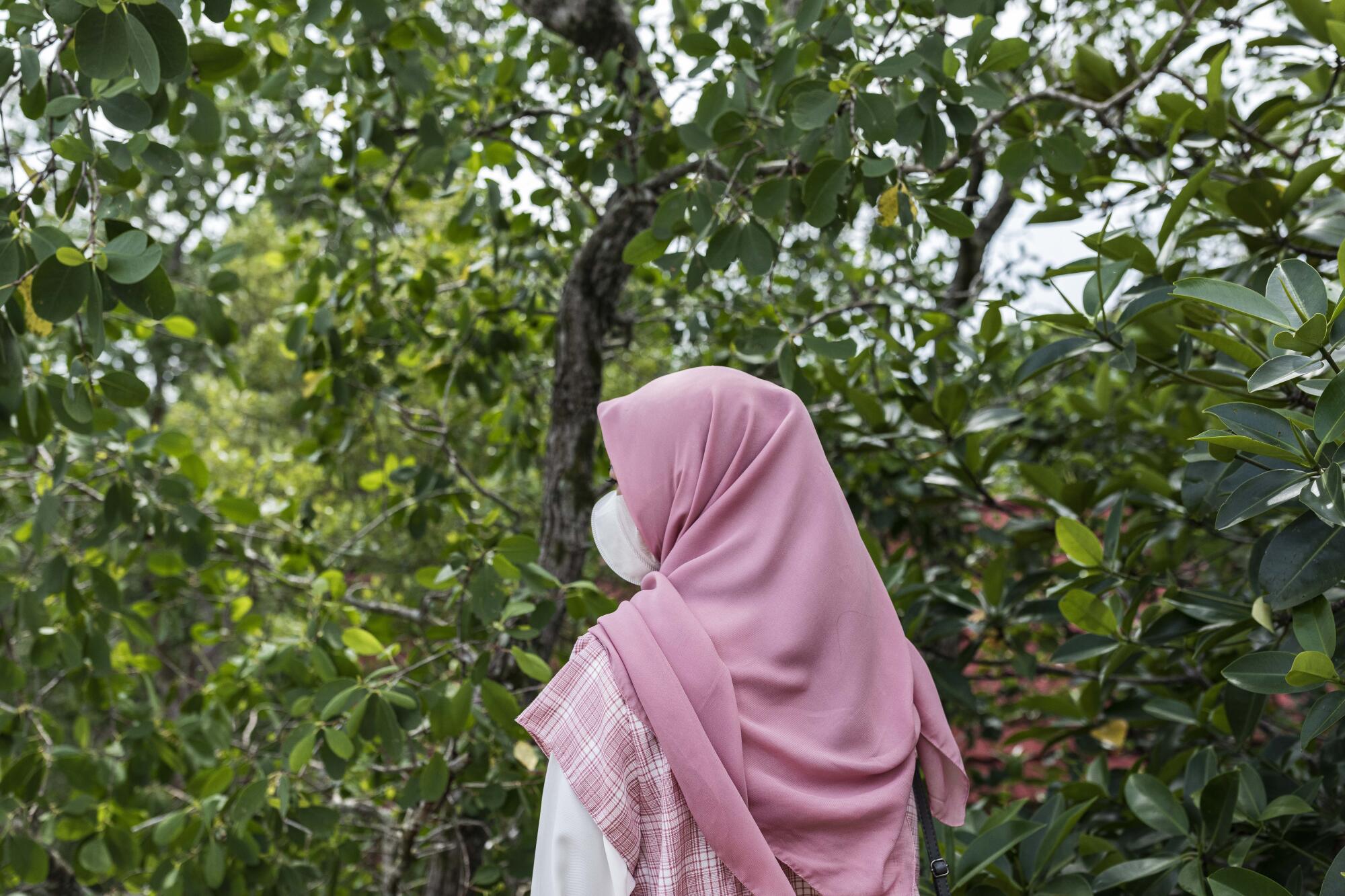
“He was a very big man, and we were very small, so we were really scared,” the younger teenager said.
The women, now 18 and 19, later discovered that police had failed to investigate several other reported sexual assaults by the 42-year-old village head, Agus Siswanto, who was sentenced to six years in prison in 2020 after activists and victims’ families campaigned for his removal. He was released on parole in October.
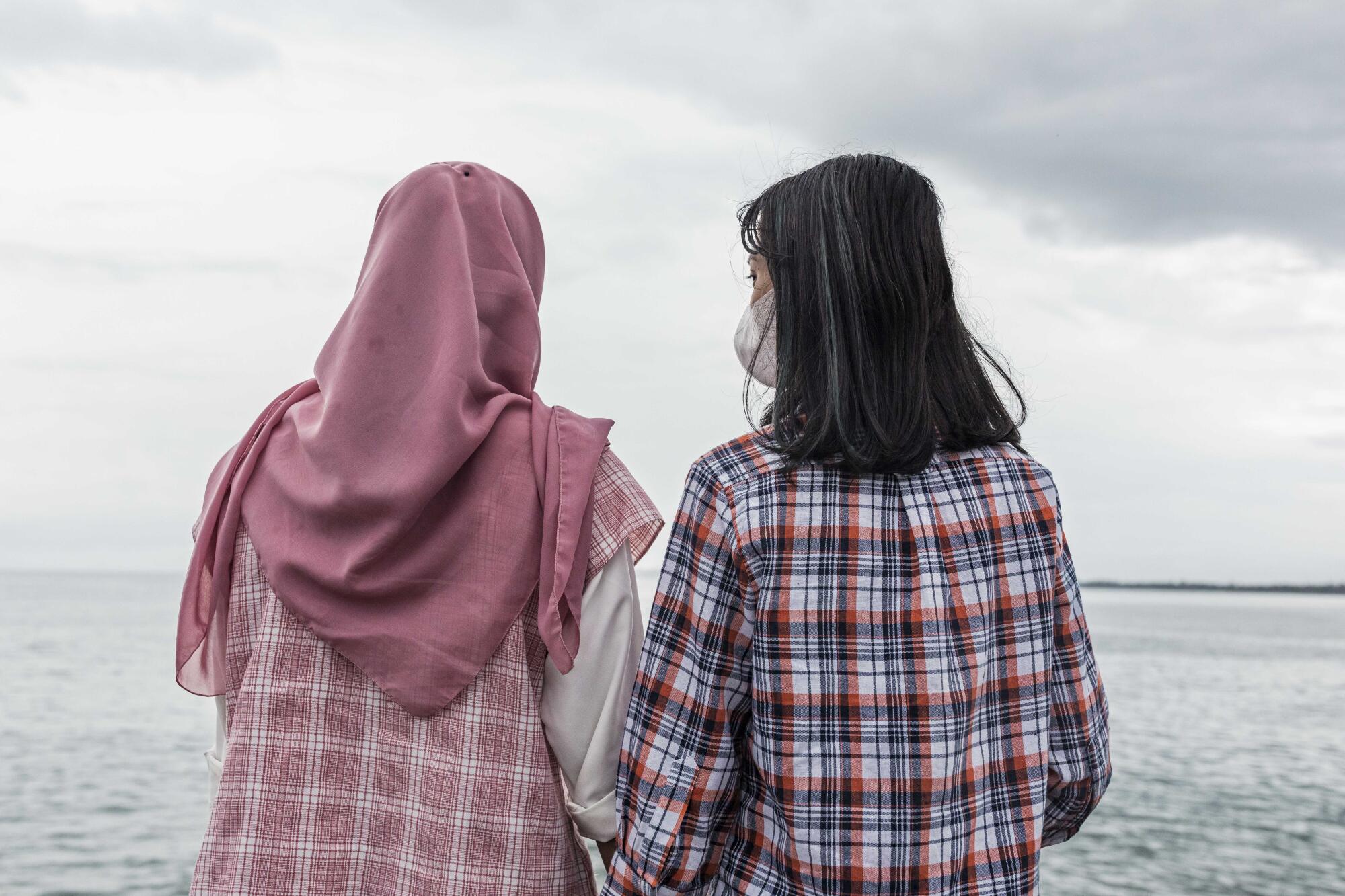
Similarly, Yuyun’s fate wasn’t widely known until activists launched a social media campaign that attracted national attention shortly after she was killed.
Yuyun had finished her school week on April 2, 2016, when she packed an Indonesian flag and a tablecloth from her classroom, volunteering to wash them over the weekend. Wearing her scout’s uniform of a light brown shirt and a dark brown skirt, she embarked on her nearly mile-long walk home.
She spotted a group of men and boys. She recognized many of them. They were neighbors and dropouts from her school. They approached her, reeking of alcohol. They pulled her into a rubber plantation at the side of the road. Yuyun resisted, but her attackers held her down. They emptied her bag and muffled her screams with the flag. They tied her hands with the tablecloth. She was choked and beaten with sticks before they took turns raping her, according to police and interviews with Yuyun’s family.
Yana was working on a coffee plantation when her daughter went missing. It was a job she shared with her husband, earning $3.50 a day. They would rotate each week working at the plantation — a nine-hour walk from home — so that one parent could be with Yuyun and her twin brother.
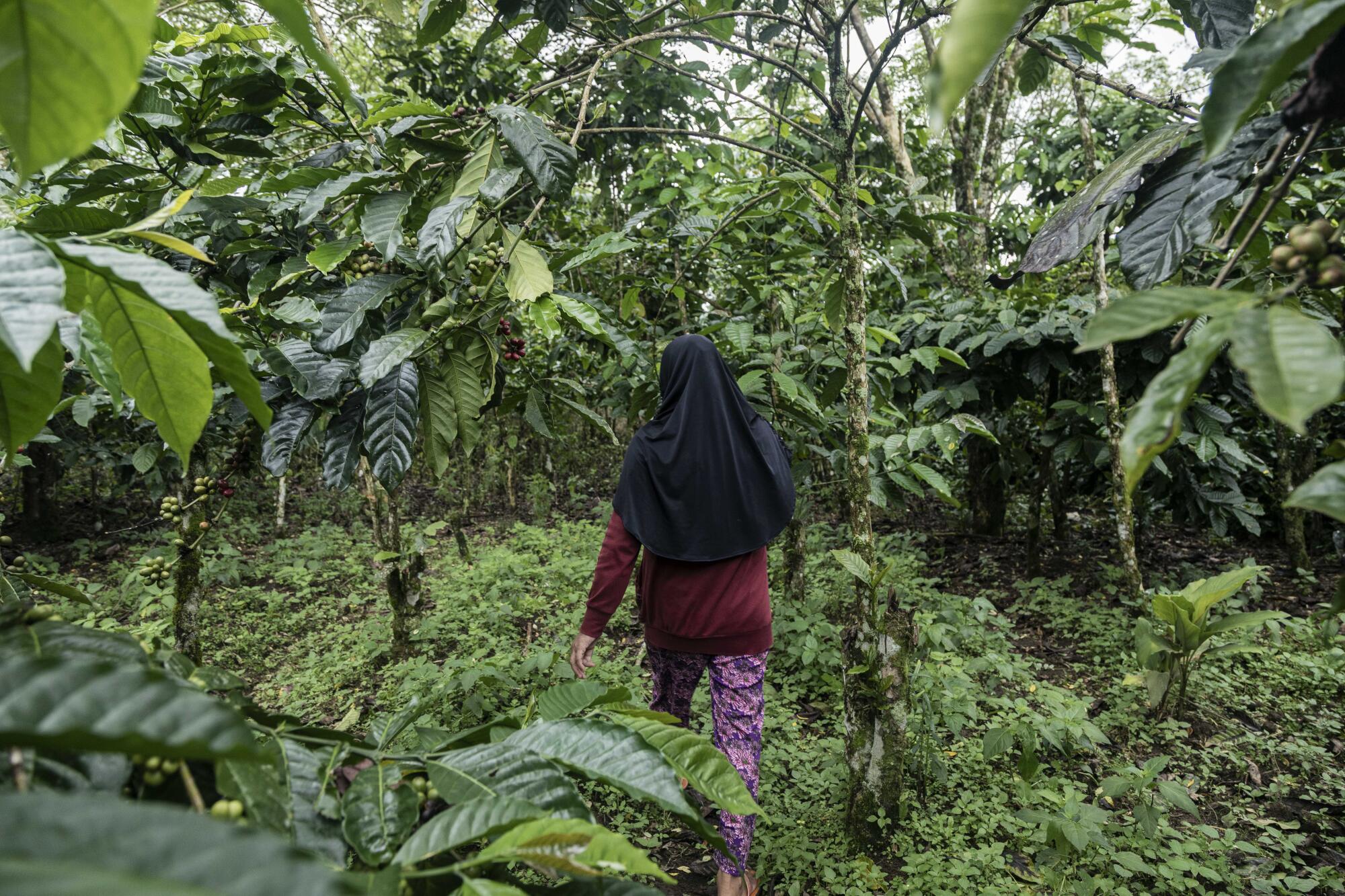
Yana screamed when she was shown Yuyun’s body. She ordered everyone around her to move away so that she could bathe her daughter. Yuyun’s hands were still bound with the tablecloth.
Police later arrested Yuyun’s assailants — 14 men and boys ranging in age from 13 to 23. The oldest was sentenced to death, the youngest to a juvenile detention center. The rest are serving prison terms spanning 10 to 20 years.
But the case has remained a torment. Yuyun’s 19-year-old brother is withdrawn, rarely speaking. Occasionally, he’ll scream aloud in his room as if a man haunted. Even the comfort of the familiar has been taken. Yuyun’s family moved to a new village after relatives of the attackers threatened them, blaming Yuyun for ruining their children’s lives.
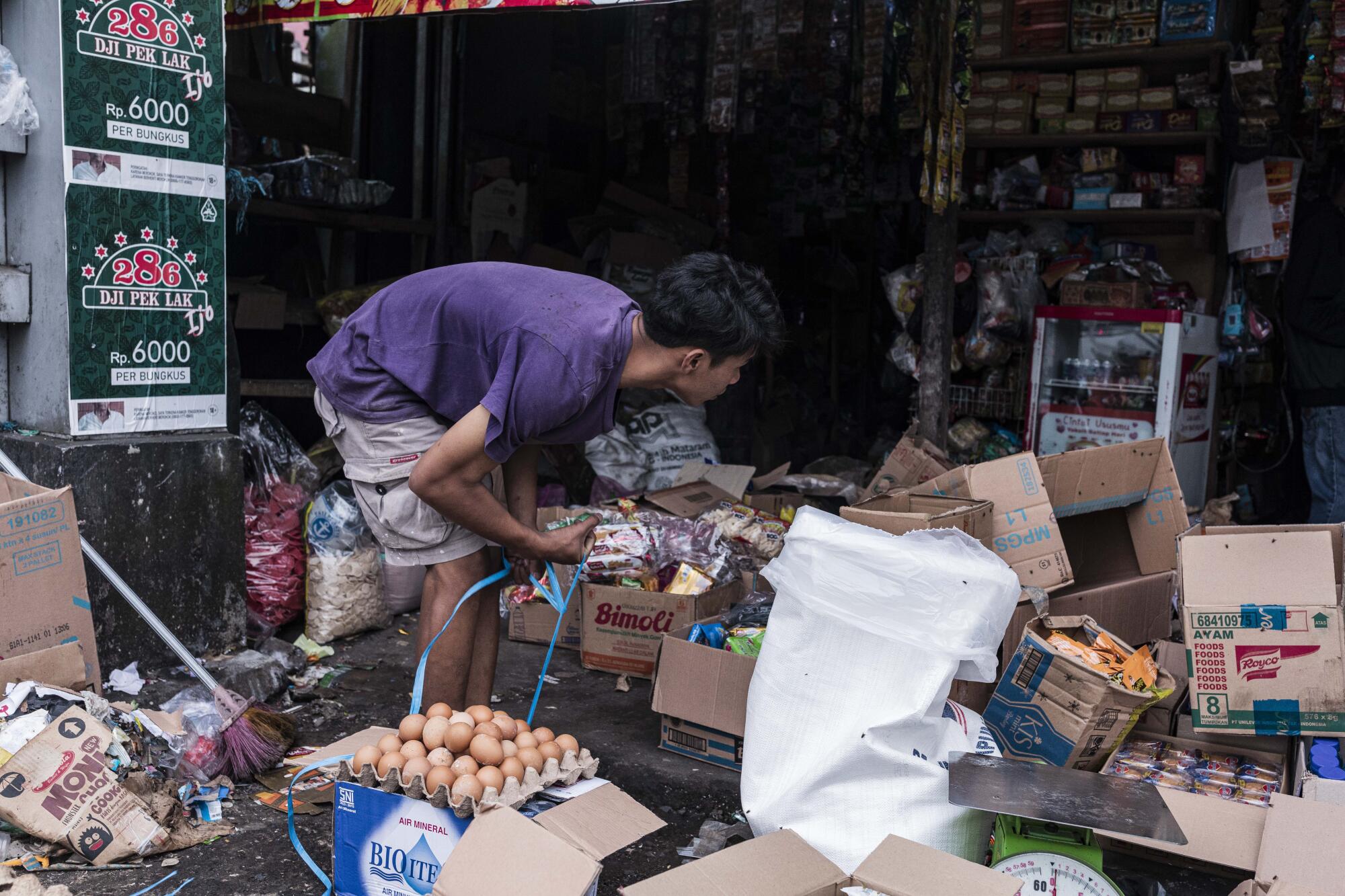
Yana says she’s found some peace working alongside an Islamic teacher on a vegetable farm. He listens quietly as she describes her sorrow, one that still makes her knees tremble when she passes her old village. She has yet to visit Yuyun’s grave. Doing so would extinguish the fantasy that she’s still with her in Bengkulu.
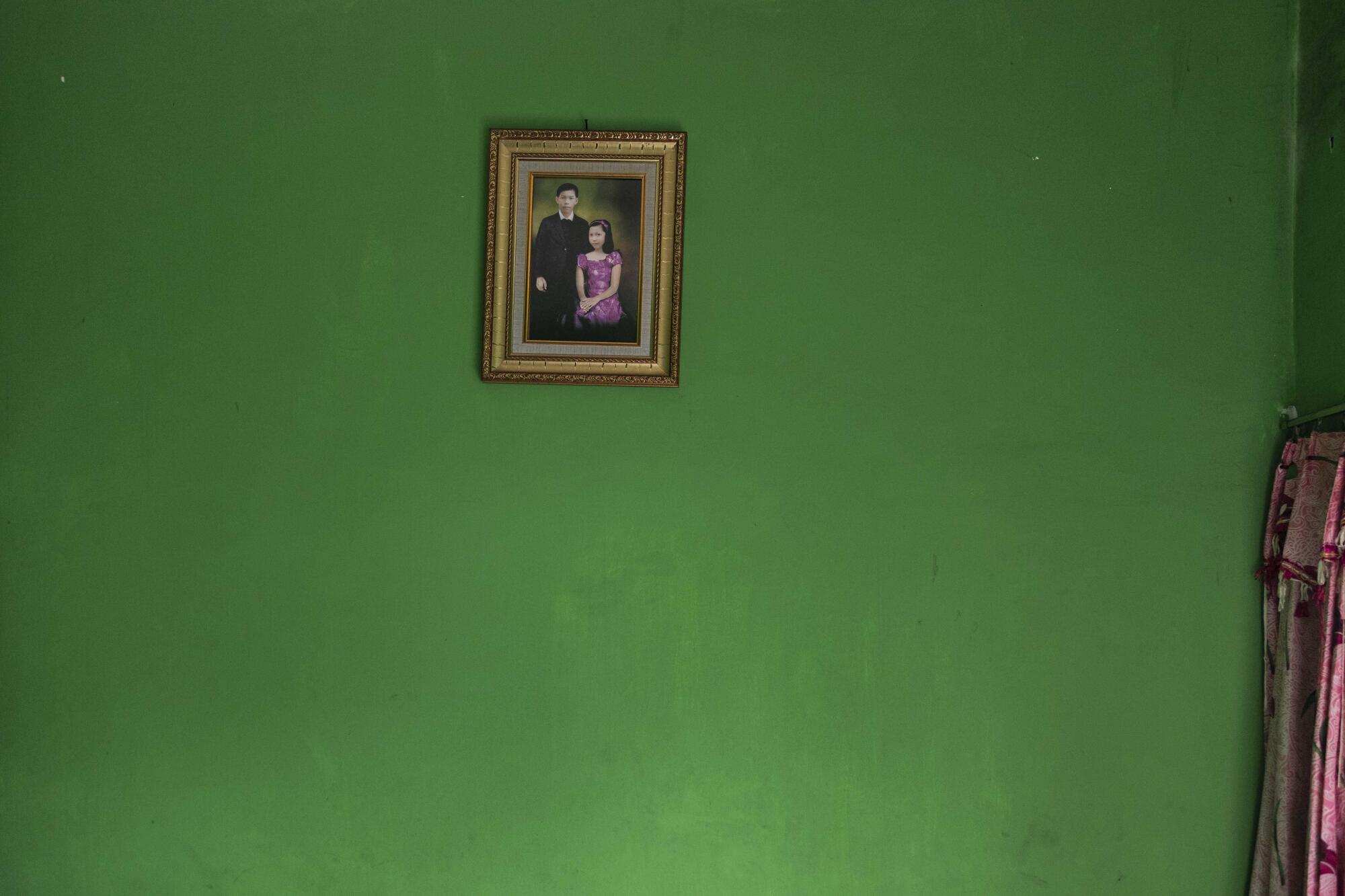
Times staff writer Pierson reported from Singapore and special correspondent Cahya from Bengkulu.
(This is the second in a series of occasional stories about discrimination and human rights abuses faced by women in Indonesia. The story was supported by a grant from the International Women’s Media Foundation.)
More to Read
Sign up for Essential California
The most important California stories and recommendations in your inbox every morning.
You may occasionally receive promotional content from the Los Angeles Times.
